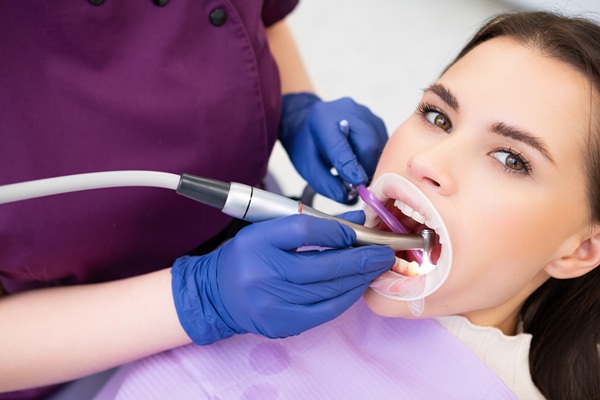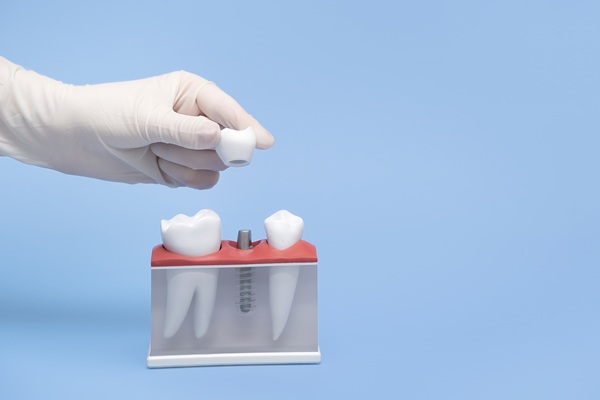Oral Cancer: What You Need to Know

Oral cancer is a scary disease that can affect anyone, at any age. This destructive cancer is the 6th most common in the world, and even if your risk factors are low, it is still smart to get checked out for oral cancer at every dental checkup. Your risk for the disease depends on many different factors, including genetics, age, gender and even skin tone.
What you need to know about oral cancer
It is crucial to catch this cancer in its first stages, and education about the disease is the first step in early detection.
Early detection saves lives
When oral cancer is caught in its earliest stage, it is very treatable. This treatability decreases for every year it goes undiagnosed. To be safe, patients should request a test for oral cancer at their next dental cleaning. Oral cancer screenings can be completed in just a few minutes at the next dentist visit. It is necessary for every adult to receive a dental checkup and cleaning frequently. For most, this means every 6 months, but for those with a higher risk of oral cancer, it could mean every 4 months.
Dentists are trained to search for signs of oral cancer, even without the patient requesting the test specifically. Usually, a visual examination is enough to determine whether there are any signs of the cancer. Precancerous cells may not be as easy to spot. Ask the dentist if they have any imaging tools to help with detection of oral cancer, especially if there are any sores or discomfort in the mouth.
Risk factors
A risk factor is defined as any quality that increases the chance of developing cancer. Unfortunately, some people are just more prone to the disease than others.
Habits like tobacco use and excessive alcohol intake account for most diagnosed cases of oral cancer today. In fact, if a patient uses cigarettes, tobacco chew, cigars, pipes or snuff, they are twice as likely to develop oral cancer in their lifetime. Alcohol use has a similar effect, causing damage to the inside of the mouth.
Men over 45 are twice as likely to get oral cancer, although a person of any gender or age can get the disease. People who work jobs that require being outdoors are at a higher risk of contracting oral cancer, as sun exposure is one of the main causes of lip cancers. Always wear protective clothing and sunblock when going outdoors.
Those with poor diet and poor oral health are at an increased risk for oral cancer as well. Poor diet can leave a person vulnerable to many diseases, including cancer. Poor oral hygiene has been linked to oral cancer as well.
Symptoms
The most common symptoms of oral cancer are swollen lumps in the mouth, rough spots, red and white patches in the mouth, a persistent sore feeling on the lips and face, unexplained bleeding or numbness, a constant sore or blocked throat, difficulty chewing and swallowing, ear pain, hoarseness and difficulty speaking. Patients will also want to look out for a change in the way their dentures fit or dramatic weight loss –– both potential signs of oral cancer.
Get an oral cancer screening
To best protect yourself from oral cancer, stop the disease in its tracks. Ask your dentist about a lifestyle plan that promotes wellness and prevents oral cancer, and of course, get tested every time you go to the dentist to catch any precancerous signs early on.
Request an appointment here: https://smilesdental.com or call Smiles Dental Care at (650) 563-1180 for an appointment in our Mountain View office.
Check out what others are saying about our services on Yelp: Read our Yelp reviews.
Recent Posts
A new dental filling restores tooth structure, and smart aftercare helps it last. Understanding the importance of care and maintenance after you get a new filling can significantly improve your dental health and overall well-being. The following tips can help you maintain optimal oral hygiene to protect and extend the lifespan of your dental fillings. Patients…
Getting tooth implants is not the final phase of an implant restoration procedure. The stage is simple, but the recovery period can be uncomfortable. This part of the implant process is the time for the mouth heals and fuses to the implant post. The following guide covers what to expect during recovery and the steps…
A gentle dentist offers quality dental care with a focus on comfort. They strive to make dental visits feel less stressful and more supportive so that patients of all ages feel relaxed in the dental chair. By using clear communication and patient-friendly techniques, even routine cleanings and restorative treatments can feel easier to manage.Many people…
An implant crown is made of strong and safe materials to give the patient a reliable long-term replacement option for missing teeth. If you have questions about the materials used to make an implant crown, this review can help you understand what exactly each component is made of and why dentists use these particular materials.There…


